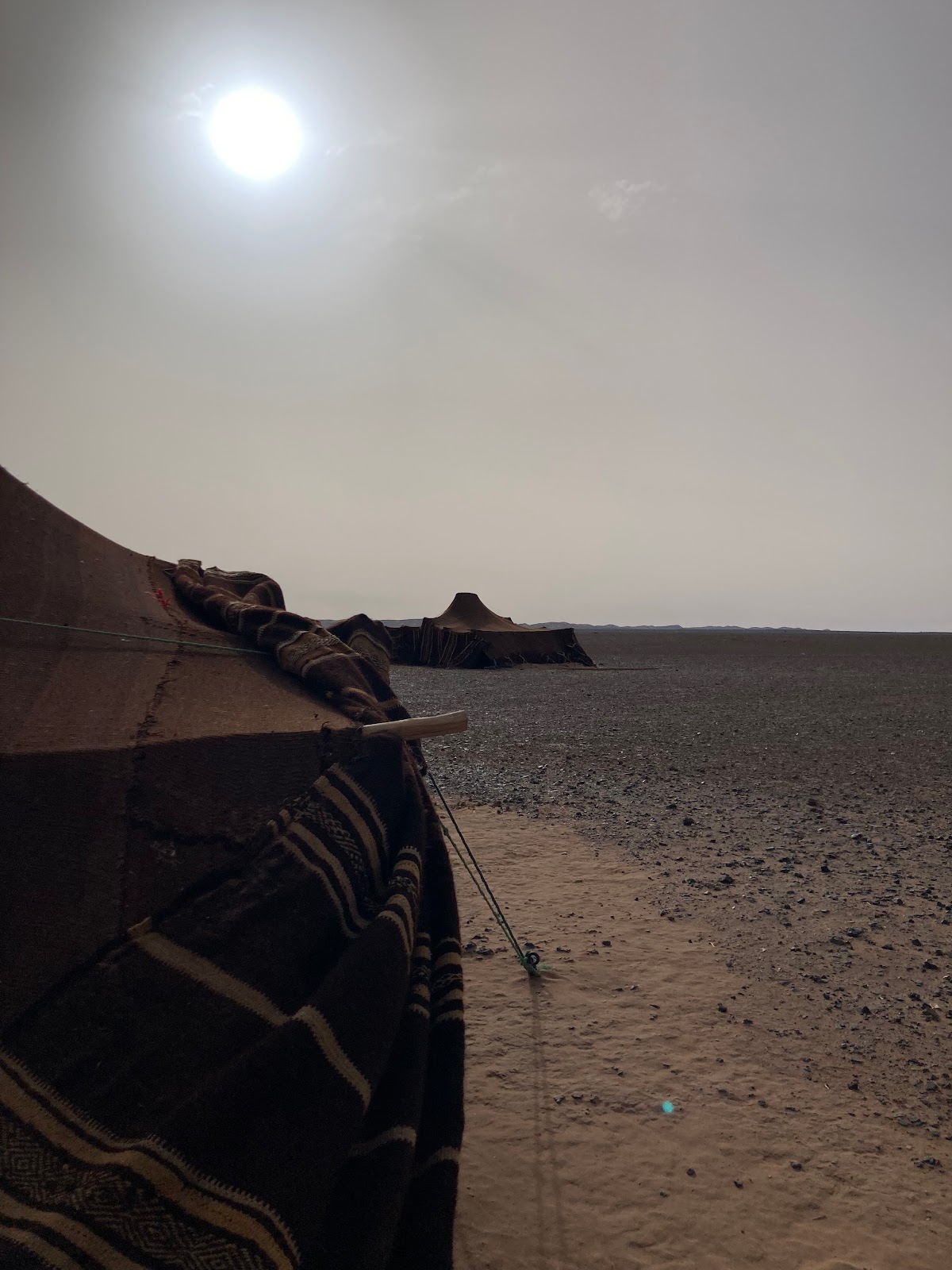Amazigh nomads in Morocco
Like many other countries, Morocco has a significant nomadic population. Nomadism has been prevalent for over a 100 years, with the tribes moving from one region to another periodically based on the weather and as needed. In their culture, this type of movement is believe to be a true form of freedom. In Morocco, the nomadic population has declined over time with some choosing to maintain a more sedentary lifestyle. However, several of these small communities still exist in the Atlas Mountains and near the Sahara desert. In recent years drought and development has led to the nomadic population in Morocco moving less and less.
After spending time in the Sahara, we went to visit a nomadic camp on our way out of Merzouga. It was super interesting to hear about their lifestyle and see their homes and how they live their daily life. Similar to other trends, the nomadic families we saw had been in the same area for quite awhile due to weather like drought conditions or other. While it is a simple lifestyle, I could see how free the people are in this way of life and why it holds such value to their communities. We sat down and ate bread, had tea, and some of us even played some soccer with one of the kids. They were very welcoming to us and it was eye-opening to experience as I'd ever seen a nomadic camp of any sort before. I don't think that they view themselves as a lower social status or class than others and I didn't see them that way either; they live freely and based on their own convictions even if that may be different than others value. I do think that it limits them in their ability to do certain things like having a set home, easily accessing markets and trade, and other, but those are things I would value socially and it is interesting to see that another culture may not place as much value on social status.
I think that it is unfortunate that in recent years droughts have prevented many of these communities from moving, though they seem to have embraced simply going where life takes them and that is a freeing mindset to have. Nomadic populations grow smaller each year as more decide to become sedentary or semi-nomadic but I think its something worth preserving as its such a deep-rooted part of the culture of the Amazigh people.



I think it is often difficult for nomadic people to navigate more rigid societies, and I wonder about the societal issues the Amazigh peoples face when they are trying to receive any social services because they have an alternative lifestyle. I know when I was in Romania, the Roma people, who were highly nomadic, often were perceived as those with a lower social status because of their different lifestyle and language. An article I found from the Indigenous Work Group for Indigenous Affairs talks about how the Amazigh peoples have indigenous knowledge about agriculture and preservation and protection of lands with specific laws - https://www.iwgia.org/en/morocco/5058-iw-2023-morocco.html. It makes me wonder how difficult it is to navigate using indigenous knowledge and production practices in the face of climate change (like the droughts you mentioned) and larger governmental regulations. Has there been any discussion of how nomadic peoples navigate these issues?
ReplyDelete